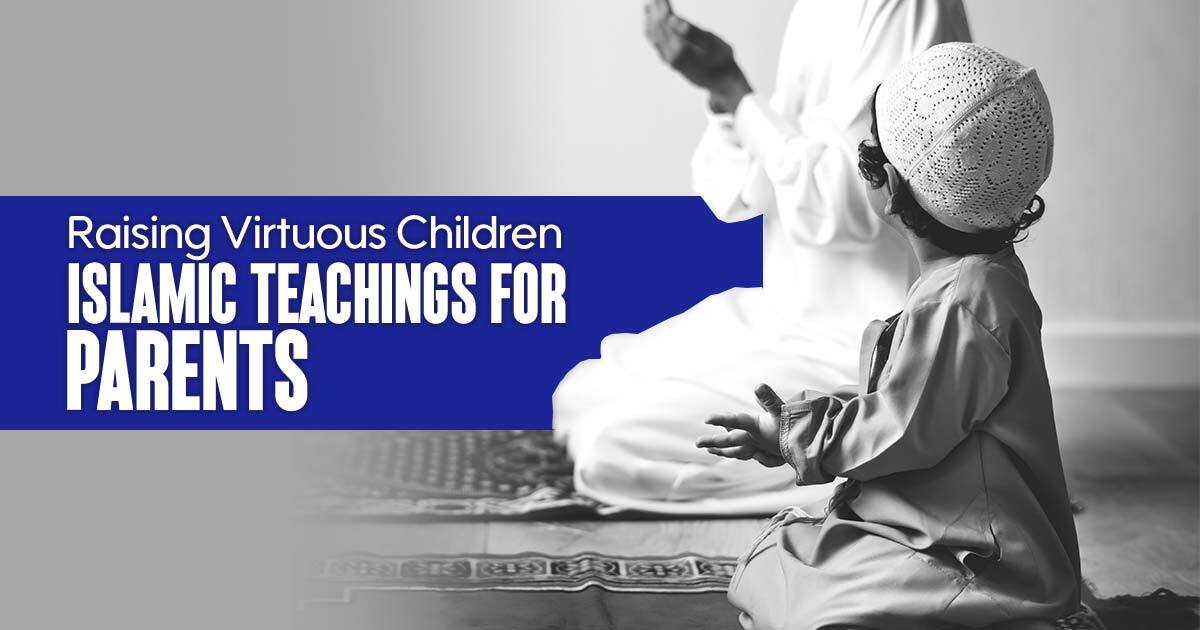In today’s fast-paced world, raising children with strong moral values and virtues has become increasingly challenging. As parents, we are constantly bombarded with conflicting advice and influences that can make it difficult to navigate the path toward nurturing virtuous children. However, Islamic teachings offer a timeless and comprehensive guide for parents seeking to instill moral character and integrity in their offspring. In this comprehensive blog by Darussalam, we will explore the essential principles and practices from Islamic teachings that can help parents in raising virtuous children.
Parenting is a sacred responsibility in Islam, with the Prophet Muhammad (peace be upon him) emphasizing the importance of raising righteous and virtuous children. Islamic teachings provide a holistic framework that encompasses spiritual, moral, and ethical development from infancy to adulthood. By following these teachings, parents can create a nurturing environment that fosters the growth of virtuous traits such as compassion, honesty, integrity, and empathy in their children.
Establishing a Strong Foundation:
- Tawheed (Oneness of God): The cornerstone of Islamic upbringing is the belief in the oneness of Allah (God). Parents should instill this belief in their children from a young age, teaching them to develop a deep connection with their Creator.
- Taqwa (God-consciousness): Instilling taqwa in children involves nurturing a sense of awe and reverence for Allah. Parents can encourage acts of worship, such as prayer, fasting, and charity, to cultivate consciousness of Allah in their children’s hearts.
- Morality and Ethics: Islamic teachings emphasize the importance of moral conduct and ethical behavior in all aspects of life. Parents should lead by example and teach their children to be truthful, kind, generous, and respectful towards others.
Education and Learning:
- Seeking Knowledge: Islam places a high value on education and lifelong learning. Parents should encourage their children to seek knowledge of both religious and worldly subjects, as knowledge is a means of attaining closeness to Allah and serving humanity.
- Quranic Education: Teaching children the Quran and its meanings is essential for their spiritual and moral development. Parents can enroll their children in Quranic classes or teach them at home, emphasizing understanding and application of its teachings in daily life.
- Prophetic Teachings: The life and teachings of the Prophet Muhammad (peace be upon him) serve as a practical example for children to emulate. Parents should narrate stories of the Prophet’s character, kindness, and compassion, inspiring their children to follow in his footsteps.
Learn More: 10 Must-Read Hadith Books in 2024
Positive Parenting Techniques:
- Communication: Effective communication is key to fostering a strong parent-child relationship. Parents should actively listen to their children, provide guidance, and offer emotional support to help them navigate challenges and dilemmas.
- Encouragement and Praise: Positive reinforcement encourages children to exhibit virtuous behavior. Parents should praise their children for their efforts and achievements, fostering self-confidence and a positive self-image.
- Discipline with Compassion: Discipline is necessary for shaping children’s behavior, but it should be administered with love and compassion. Islam emphasizes discipline as a means of nurturing, not punishment, focusing on correction and guidance rather than coercion.
Role of the Family and Community:
- Family Bonding: Strong family ties are essential for children’s emotional well-being and moral development. Parents should create opportunities for family bonding through shared activities, meals, and religious practices.
- Community Involvement: Engaging with the wider community exposes children to diverse perspectives and experiences. Parents should encourage their children to participate in community service, charity work, and social justice initiatives, instilling values of empathy, compassion, and social responsibility.
Nurturing Spiritual Growth:
- Prayer and Worship: Encouraging children to establish regular prayers cultivates a sense of spirituality and connection with Allah. Parents should make prayer a central part of their family routine, involving children in congregational prayers and teaching them its significance.
- Dua (Supplication): Teaching children the importance of dua fosters reliance on Allah and trust in His mercy. Parents can encourage children to make dua for themselves, their families, and the wider community, nurturing a sense of gratitude and humility.
- Seeking Forgiveness: Instilling the habit of seeking forgiveness and repentance teaches children humility and accountability for their actions. Parents should model forgiveness and mercy towards their children, creating a culture of forgiveness and reconciliation within the family.
Read More: Benefits of Reading Quran in Ramadan
Conclusion:
Raising virtuous children in accordance with Islamic teachings requires dedication, patience, and constant effort from parents. By establishing a strong foundation of faith, prioritizing education and learning, employing positive parenting techniques, fostering strong family and community bonds, and nurturing spiritual growth, parents can play a pivotal role in shaping their children into upright and morally conscientious individuals.
FAQs About Raising Virtuous Children: Islamic Teachings for Parents:
How can I teach my children about Islamic values in a non-Muslim society?
In non-Muslim societies, utilize storytelling, Islamic books, and community events to instill Islamic values. Incorporate Islamic teachings into daily life to reinforce values and identity.
What role do schools and peer groups play in shaping children’s moral development?
Schools and peer groups influence children’s moral development, but parents remain primary influencers. Open communication with children helps navigate peer pressure, reinforcing moral teachings at home.
How do I handle conflicts between my cultural practices and Islamic teachings?
Prioritize Islamic teachings over cultural practices, seek guidance from scholars, and educate children about the distinction between cultural traditions and Islamic principles.
How can I encourage my children to remain steadfast in their faith amidst societal challenges?
Encourage regular religious practices and open communication, providing a supportive home environment. Involvement in Islamic youth groups can also offer support and guidance.
What resources are available for parents seeking guidance on Islamic parenting?
Books, online courses, workshops, scholars, and parenting support groups offer valuable guidance and support for Islamic parenting principles.













